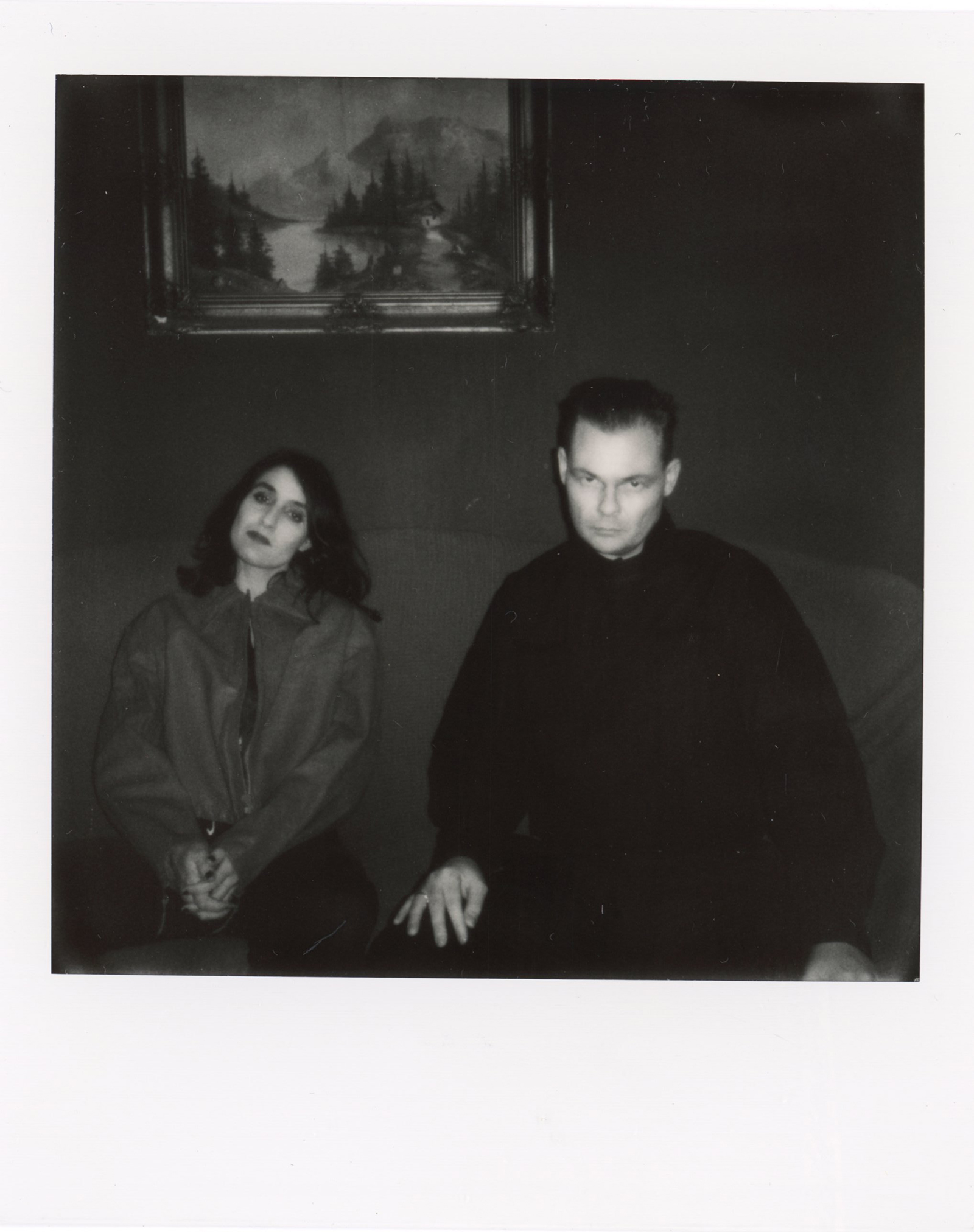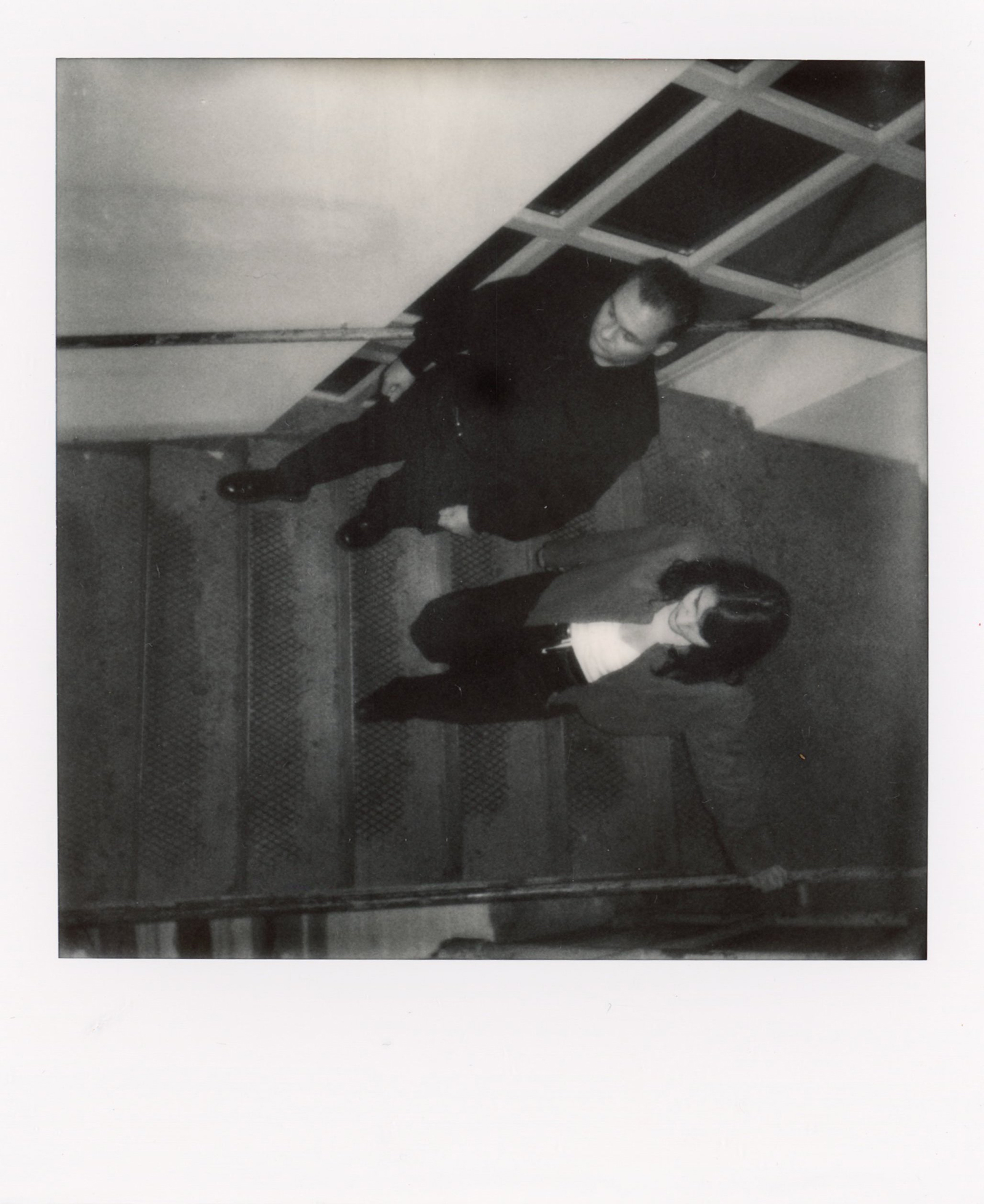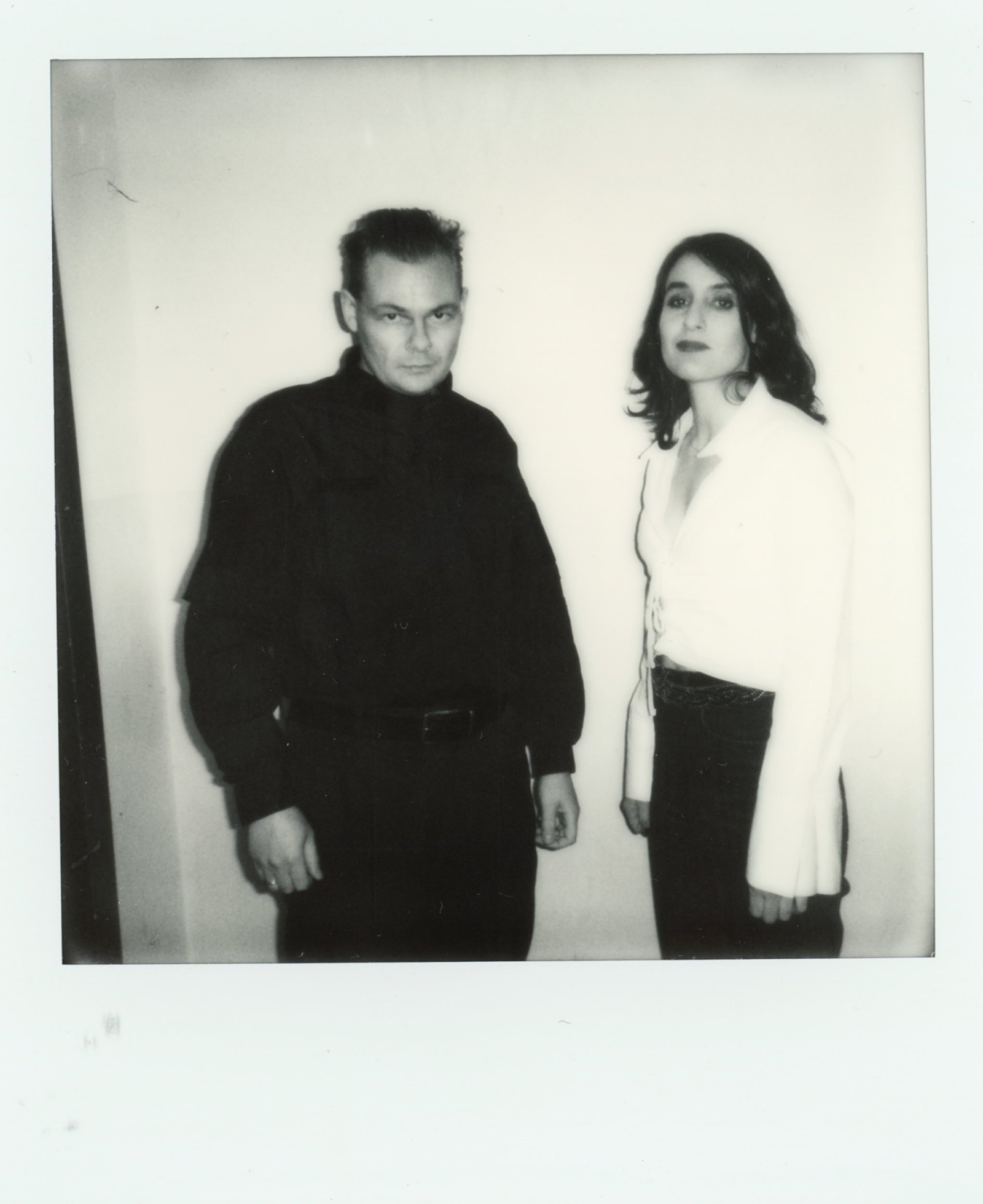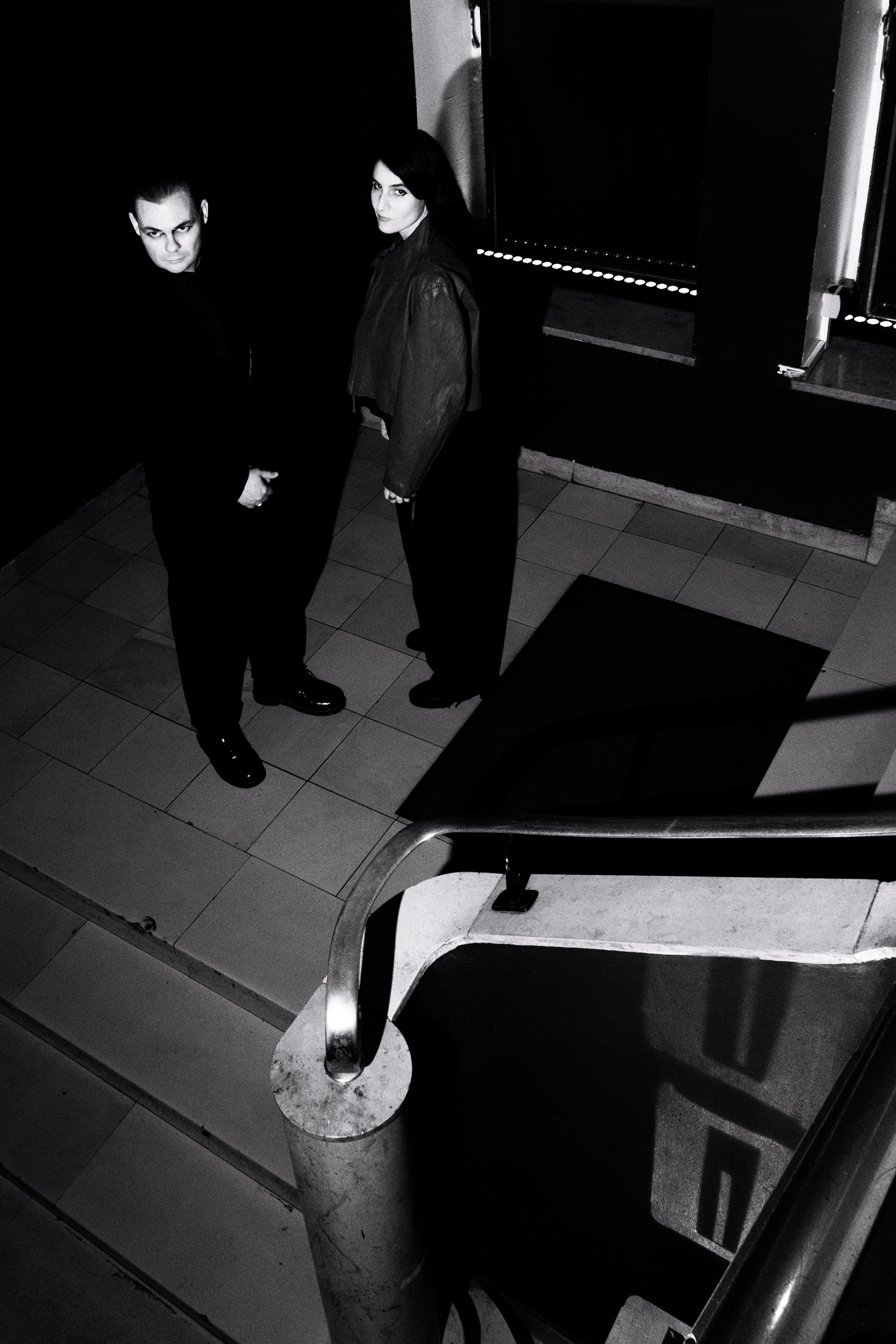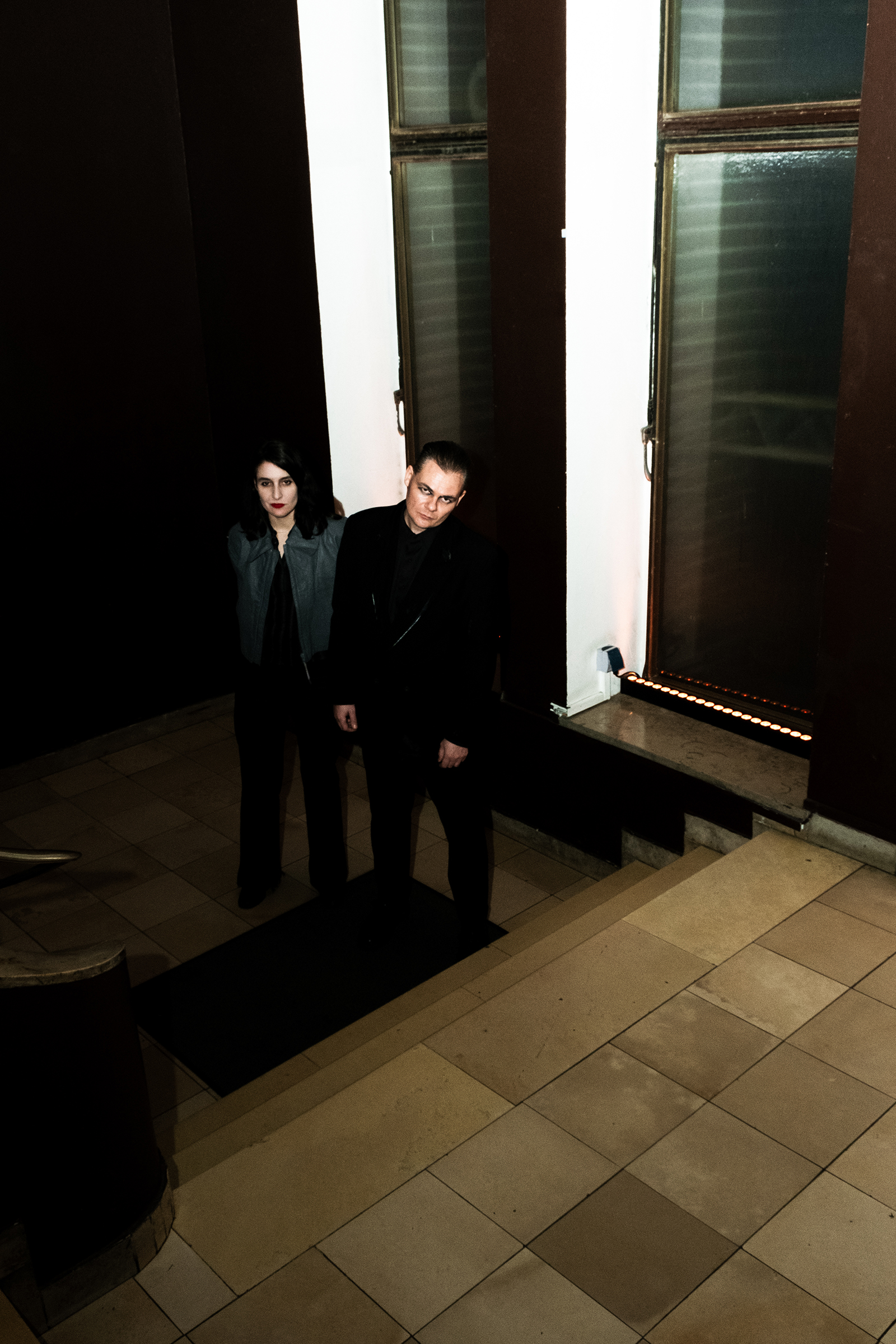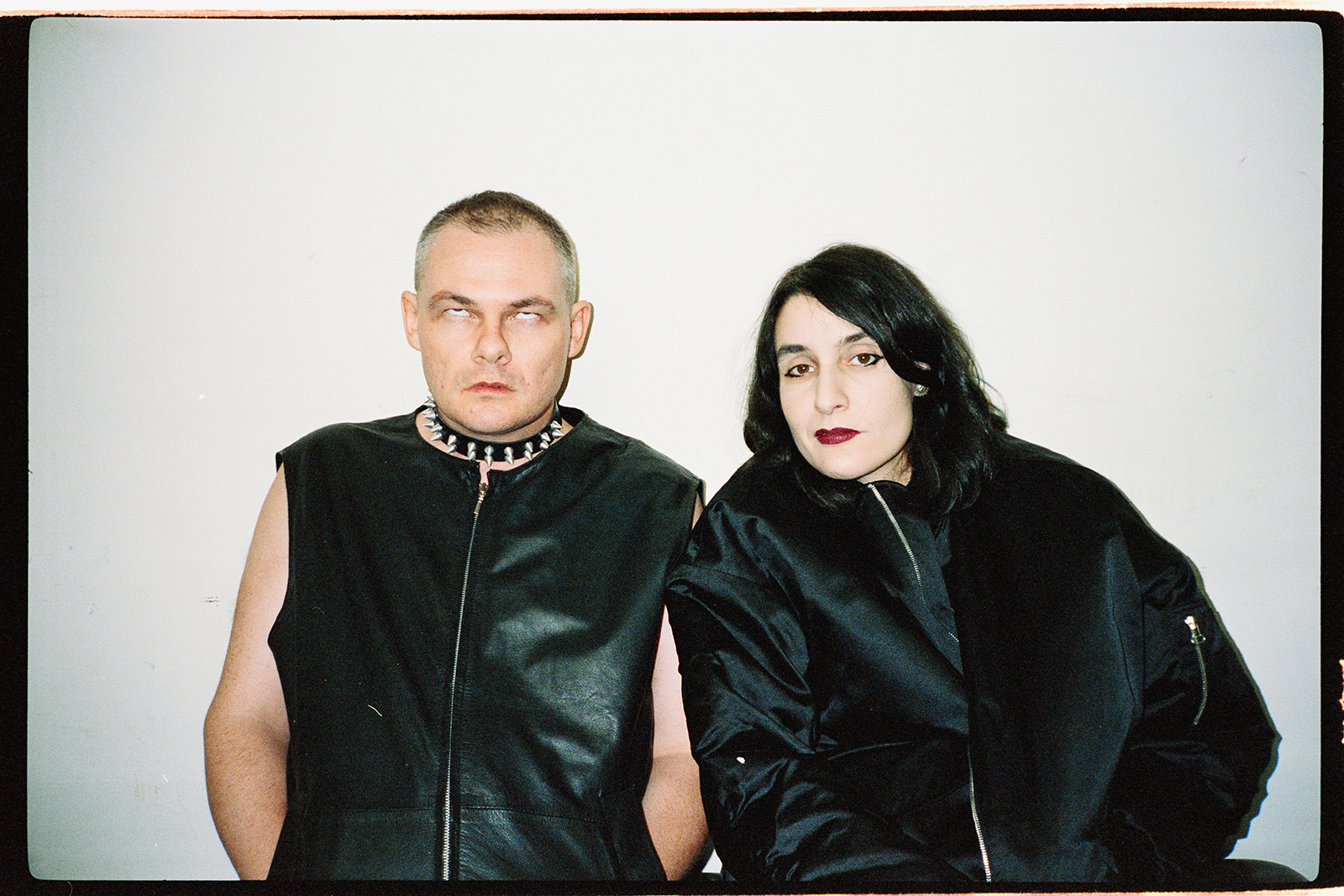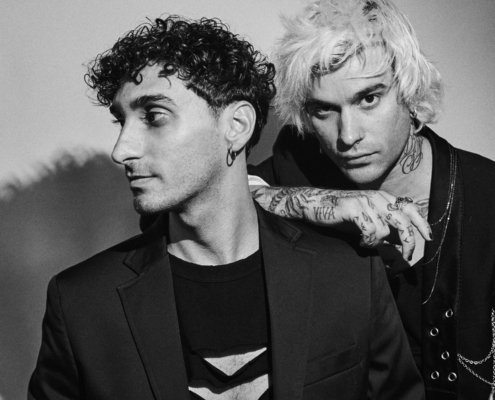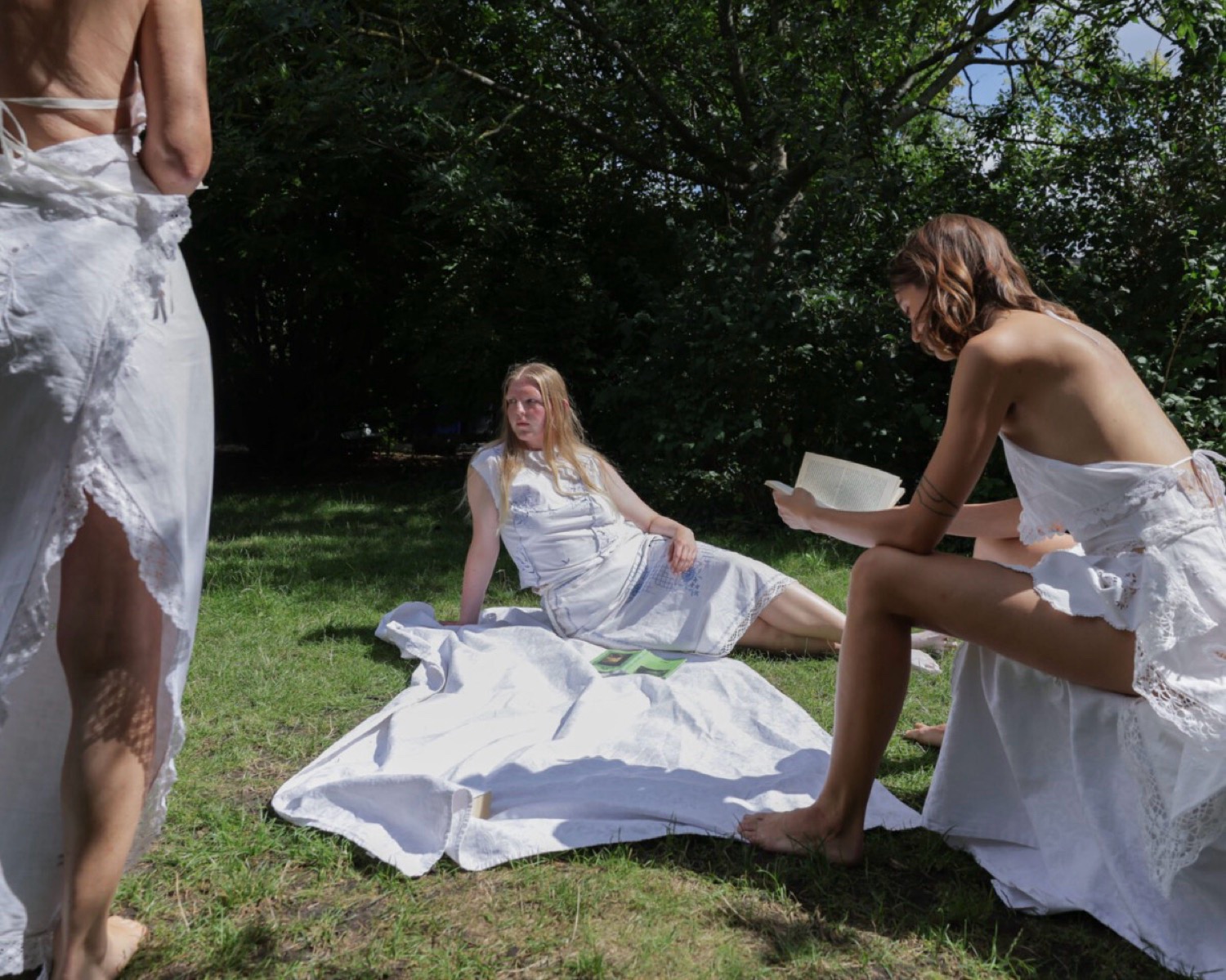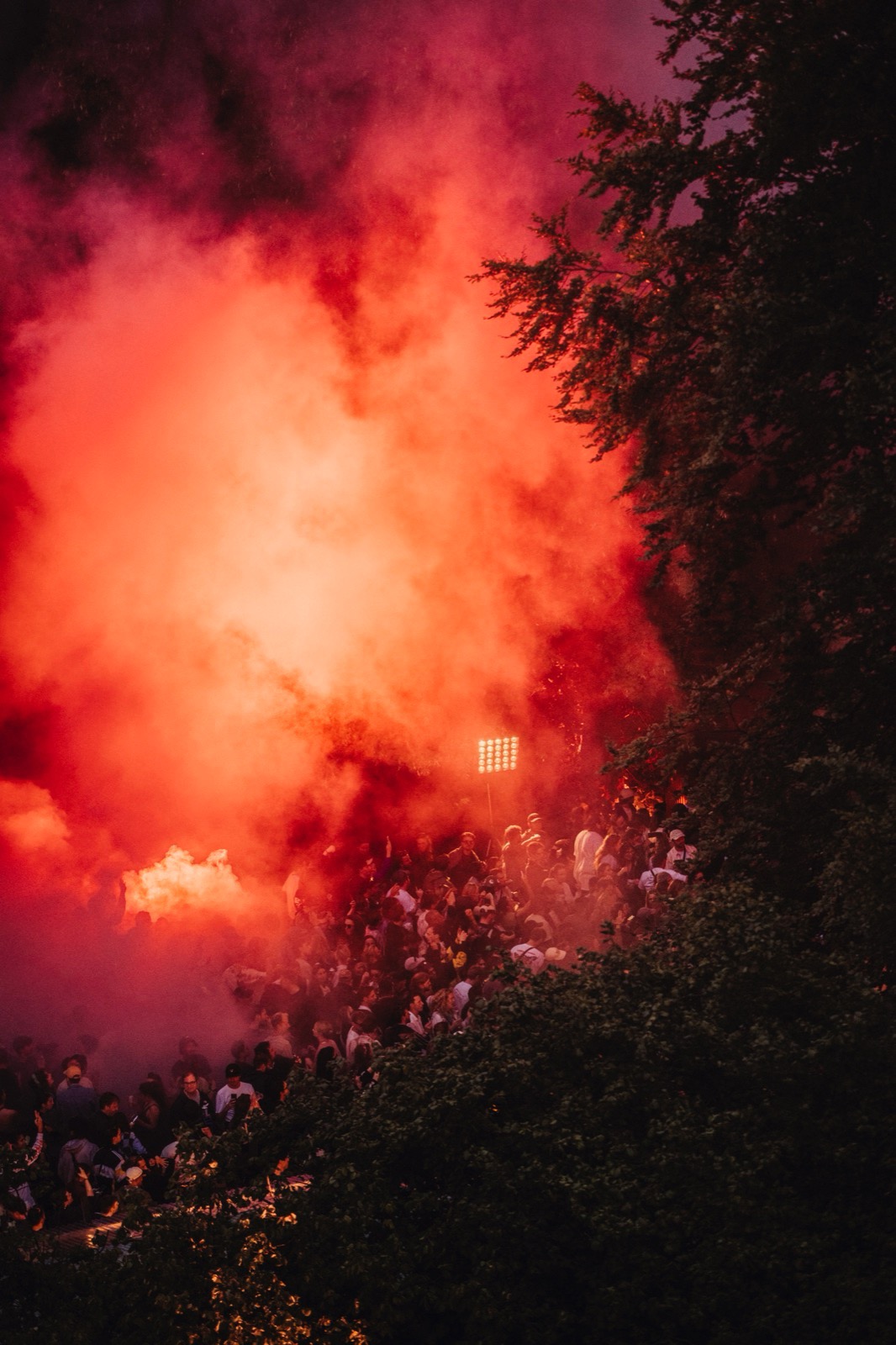You met in Sunderland, somewhere between shadow and sea. What sparked that initial connection and made you realise you’d found a companion for a journey built on words and sound? Was it love at first sight or was the shared eerie music taste the catalyst for your bond?
Larissa: When we met up in real life the plan was to try and create some music cause I travelled to Sunderland with a reverb pedal. I had tried making music with multiple people before, but with William it was just an instant connection and we wrote half of our first album in one week. It was really easy.
Before meeting in person, you were online pen friends, both drawn to 80s music. What was the soundtrack of those insomniac nights of relentless creation? How did you hone your instinct for sound without any formal training?
Larissa: Yeah, right. We were each other’s top neighbours on last.fm and started sending each other tracks mostly from the early 80s. I was completely obsessed with music from that era and we both felt the urge to recreate tracks with that particular sound. We didn’t think much about it, we just did it really fast.
In that regard, your 2023 EP Strangelove, a tribute to Depeche Mode, is a reminder of those influences. What parts of their legacy still pulse through your work? Both looking at more established voices as well as more contemporary ones, which are the bands and projects that haunt your speakers?
William: I was always a big fan so the band always had an effect on me growing up in northern England, the atmosphere, rhythms and melodies are what always lured me. As for favourites I am completely all over the place these days, one day it could be Bootsy Collins, another day Trojan Records… I was also recently looking back into Gang Of Four. But in general my taste is super eclectic and broad.
Larissa: I am not the biggest Depeche Mode fan. Music for the masses (1987) is probably my favorite though. I play mostly old stuff from the 80s and 90s. Bands like Swans or Kino and a lot of subversive and obscure stuff. One hit wonders.
You frequently incorporate German into your lyrics. What do you feel this adds sonically to your atmosphere? Suggesting spine-chilling edges of Gothic architecture, Neo-Expressionist cinema, Berlin basements in the dead of night, how conscious is that resonance?
Larissa: German is more brutal. It hits differently more in your face. Sometimes it is giving a text harshness and aggression and then again I feel like certain words have a more beautiful ring to them in German. So I just like to play with the language a bit.
Your songs often touch on the theme of death. Do you aim to find a way of enduring the fear of an impending end or do you find comfort in the idea of an ethereal peace beyond life’s pain? Does spirituality or religion inform this perspective?
William: Singing about death related topics is just a way to vent your negative feelings, death is reality unlike mainstream pop themes of today.
Larissa: Being a goth by nature, I always had this deeply romantic relationship with death. I believe in nothing at all really. I just fear the pain and hope to pass away in peace.
Gallowdance is often cited as a coldwave anthem. Its bassline is hypnotic in its simplicity. Did that come first and how did you build the track around it? What’s the story behind a song that’s become such a touchstone in the goth scene?
Larissa: This song chased me in my dream. When I had a lot of somber thoughts back in the day. It is way more sad than people probably think it is. Like it has become this hilarious meme now that depression is more socially accepted but it is actually about a very dark period of my life.
William: Larissa dreamt this song, the parts and then we wrote it together. Despite its upbeat-ness the lyrics are rather heavy if you were to translate!


